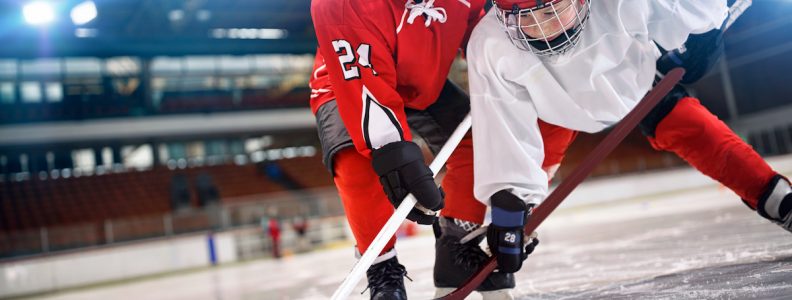Many parents worry about their children playing hockey because of the risk of injury. Performance Health is here to help you with all your sports-related questions! We will discuss how to prevent injuries, what to do if there is one, and how to get your kids into hockey. Performance Health specializes in helping athletes recover from injuries so they can perform at their best on game day or at practice. Performance Health also offers a full line of medical equipment for purchase online.
How can you prevent your child from getting hurt playing hockey?
Hockey is a great sport for children to get involved in because it teaches teamwork, discipline, and sportsmanship. It also helps improve hand-eye coordination and skating skills. However, injuries are common in hockey, so it’s important for parents to know how to prevent them. The most common injuries are:
- Concussions
- Slips and falls
- Broken bones
If your child does get injured, Performance Health can help. Performance Heath offers sports medicine products such as:
- Bandages and braces for ankles, wrists and elbows
- Recovery devices like compression sleeves to reduce swelling in an injury.
So what are you waiting for? Performance Health can help you keep your child safe while playing hockey. Visit our website to learn more!
- Performance Health offers a full line of medical equipment for purchase online
- Hockey is a great sport for children because it teaches teamwork, discipline, and sportsmanship
- The most common injuries in hockey are: concussions, slips and falls, and broken bones
- Performance Health can help if your child gets injured playing hockey. They offer sports medicine products such as bandages, braces, recovery devices, and more.
- Visit Performance Health’s website to learn more!
What you need to know about concussions in hockey
- Concussions are a common injury in hockey. They can be caused by a fall, a hit to the head, or a collision with another player.
- If your child experiences any symptoms of a concussion after being injured, take them to see a doctor right away
- There is no one treatment for concussions, so your child may need to see a variety of health professionals for different symptoms.
- If your child has been diagnosed with a concussion, they must stay away from activities like sports and school until all symptoms go away.
- If you’re concerned about concussions in hockey or want help getting your kids involved in the sport, contact Performance Health today!
10 foods to eat before you play hockey
- Rice – carbohydrates will give you energy during the game
- Yogurt – protein will help build muscle and repair damaged tissue
- Protein shake – helps to maintain muscle mass while fighting off fatigue
- Fruit smoothie with banana, berries, etc… – provides an excellent source of antioxidants for protection against oxidative stress caused by exercise
- Salmon or tuna salad sandwich on whole wheat bread – high in omega-3 fatty acids which are important for brain function and heart health
- Banana muffin with walnuts or almonds added to it – these nuts are rich in essential minerals like calcium, magnesium, potassium and zinc that are good for your bones and immune system1. Eat a high-protein breakfast
- rink plenty of water before and during the game
- Eat vegetables with every meal to get more vitamins in your system
- Wear sunscreen on sunny days for protection against skin cancer
- Eat healthy at least two hours before the game so you don’t have an upset stomach or cramps when playing 6. Bring snacks like bananas, apples, granola bars, and yogurt with you to eat during the game
How to get your child into hockey
Hockey is a great sport for kids to get in on. The first step would be finding out if there are any hockey clubs or teams near where your child lives, and then registering with them as soon as possible! A lot of people might think that because they don’t play video games all day long their skills wouldn’t need training, but this couldn’t possibly be further from the truth- every kid has different strengths, so it’s important to find what works best suited towards yours before launching into anything else too early (like buying equipment). Once these matters have been taken care off – which should only take minutes tops!–you can finally focus 100% attention on getting better at moving around while keeping both hands dry; two key Foundation Skills required.

